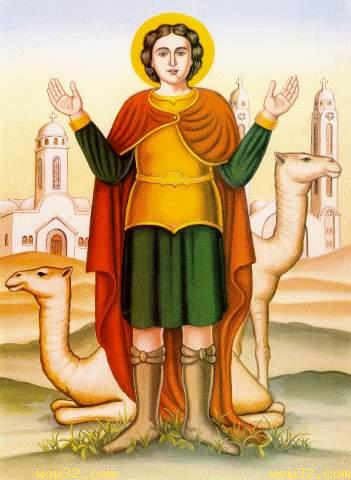- Origin: Biblical Hebrew אֶפְרַיִם
- Meaning: “fruitful; double fruited; increasing.”
- Gender: masculine

The name is borne in the Bible by the son of Joseph and Asenath, who is considered a patriarch, as he is a founder of one of the 12 trubes of Israel. According Genesis 41:52, he is named thus by Joseph because “God has made me fruitful in the land of my suffering.”
The name was also borne by a few early Christian saints, including St. Ephraim of Syria (4th-century, CE).
Ephraim appeared in the U.S. Top 1000 between 1880-1914, it disappeared for 99 years and reappeared in the charts in 2013. For its first centennial cycle, it peaked at #403 in 1880. As of 2023, it was the 992nd most popular male name.
Its Spanish counterparts of Efraín and Efrén have also appeared in the U.S. Top 1000, Efraín appeared between 1950 and 2014, peaking at #469 in 1981 whilst Efrén appeared between 1966-2007, peaking at #768 in 1990.
Forms/Usages
- Efrayim ኤፍራይም (Amharic, Modern Hebrew)
- Yeprem, Jeprem, Eprem Եփրեմ (Armenian)
- Afrem ܐܦܪܝܡ (Assyrian)
- Afri ܐܦܪܝ (Assyrian)
- Afron ܥܦܪܘܢ (Assyrian)
- Aprem, Aprim ܐܦܪܝܡ (Assyrian)
- Efrim ܐܦܪܝܡ (Assyrian)
- Ephraim ეფრაიმ (Georgian); Εφραιμ (Greek); ⲉⲫⲣⲁⲓⲙ (Coptic); ܐܦܪܝܡ(Syriac) (Assyrian, Dutch, English, Estonian, German, Greek, Portuguese)
- Akhrym, Ahrym Акхрым (Belarusian)
- Yafrym Яфрым (Belarusian)
- Efraïm (Catalan, Dutch)
- Efrajim (Czech)
- Efraim (Finnish, Hungarian, Italian, Nordic, Polish, Romanian)
- Eprami (Finnish)
- Éphraïm (French)
- Îvfa (Greenlandic)
- Eframi (Icelandic)
- Efraím (Icelandic)
- Efraimo (Italian)
- Efrem (Italian, Polish)
- Effrem (Italian)
- Efro (Italian)
- Ephraem (Late Latin)
- Ephraimus (Late Latin)
- Ofrem (Russian, Archaic)
- Yefraim, Jefraim Эфраим (Russian)
- Yefrem Ефрем (Russian)
- Jevrem Јеврем (Serbian)
- Efraín (Spanish)
- Efrén (Spanish)
- Ohrim, Okhrim Охрім (Ukrainian)
- Evron ֶבְֿרוֹן (Yiddish)
Sources
- https://www.biblestudytools.com/dictionary/ephraim/
- https://dmnes.org/name/Ephraim
- https://www.behindthename.com/name/ephraim
- https://www.atour.com/education/assyriannames.html#Allap%20(A)
- http://www.sargonsays.com/names
- https://www.trismegistos.org/nam/detail.php?nam_id=27342&ref_per_namvar=namvar
- https://www.nordicnames.de/wiki/Ephraim
- https://it.wikipedia.org/wiki/Efrem
- https://pl.wikipedia.org/wiki/Efrem
- https://de.wikipedia.org/wiki/Ephraim









 Its feminine form of Rufina was borne by a couple of early saints, one of whom was from Seville, she was a pottery maker who refused to sell her wares for a pagan festival.
Its feminine form of Rufina was borne by a couple of early saints, one of whom was from Seville, she was a pottery maker who refused to sell her wares for a pagan festival.